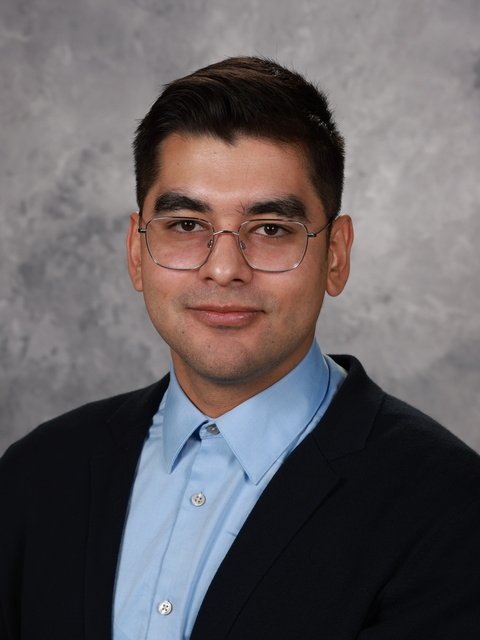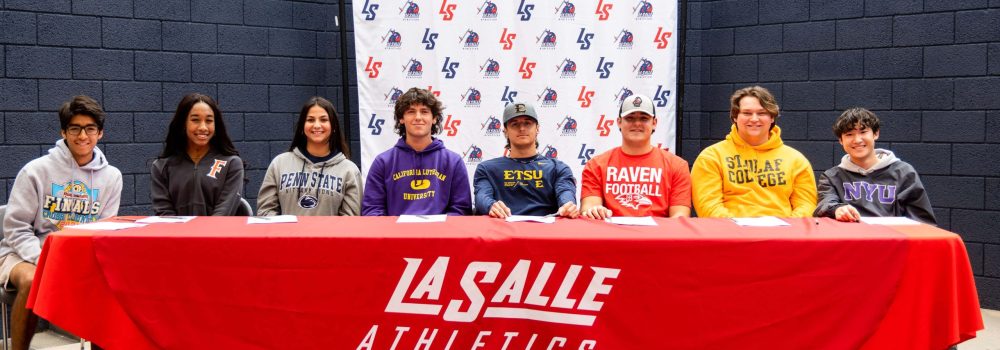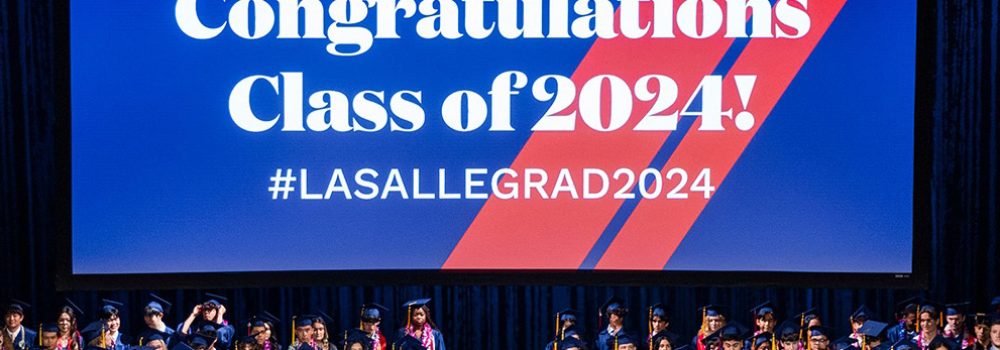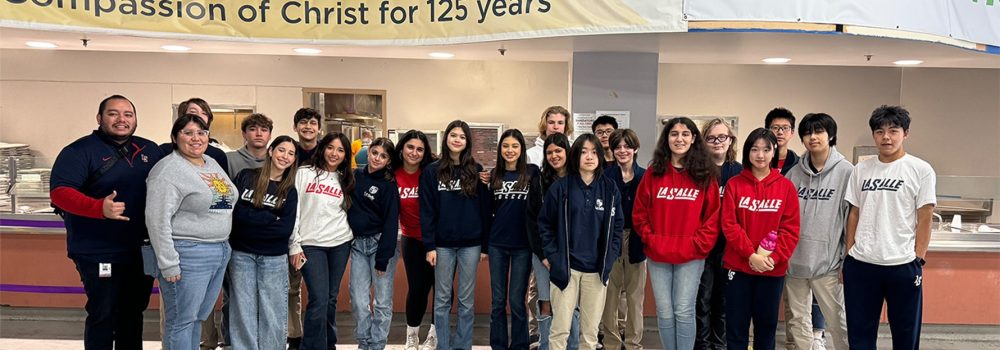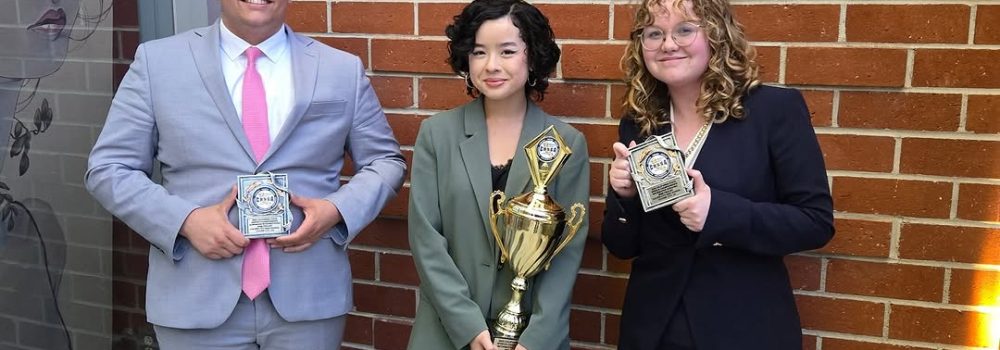Overview
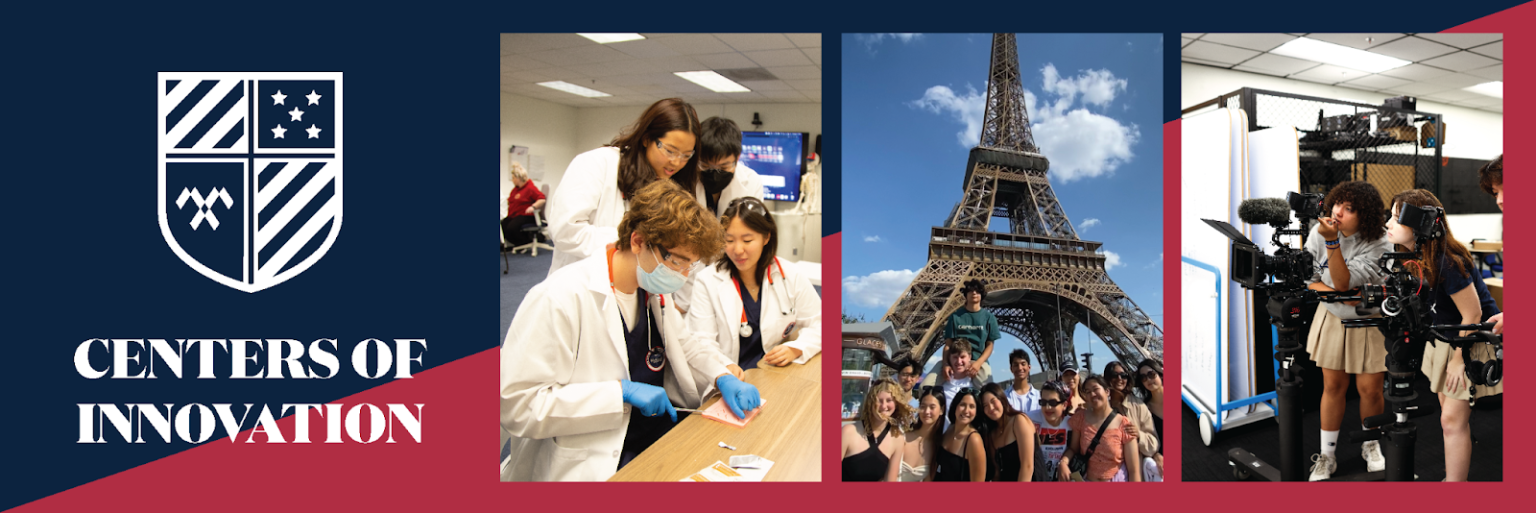
Over the last several years, La Salle College Preparatory has experienced a tremendous amount of growth in both our enrollment and expansive opportunities offered to our students. Concurrently, we have made significant strides in advancing the goals and objectives outlined in our Five Year Strategic Plan, while ensuring our Core Principles and mission are at the forefront of our work and decision-making.
Today, it is with great enthusiasm that I share some outstanding news regarding the ongoing growth and advancement of our school and strategic plan. We are delighted to announce the official launch of our Centers of Innovation: The CARLOW Medical Center, The Center for Cinematic Arts Center, and The Center for Cultural Perspectives, The Center for Linguistic Exploration, and The Center for Discovery & Design.
These Centers of Innovation have been strategically developed to encourage our students to explore their passions, take calculated risks, and discover pathways to excellence.
Each center is also closely aligned with our school’s strategic plan, which places a strong emphasis on nurturing creativity, individuality, and personal growth while providing a diverse and comprehensive education that surpasses the confines of traditional classrooms. They offer opportunities for our students to explore their interests, develop critical skills, and connect their passions to real-world experiences.
Through these centers, we aim to empower our students to follow their dreams, become leaders in their chosen fields, and contribute positively to society. Our team of dedicated Center Directors, along with outside consultants and industry experts, have worked tirelessly throughout the last year to help develop tailored curriculums, ensuring that our students receive the highest quality education possible.
We are thrilled to invite you to celebrate this exciting milestone. It’s time for your children to dive into a world of enriching opportunities that will shape their future. The video below also provides valuable insights into our Centers of Innovation, providing perspectives from both our Center Directors and students.
CARLOW Center for Medical Innovation
Medical Careers Pathway Program
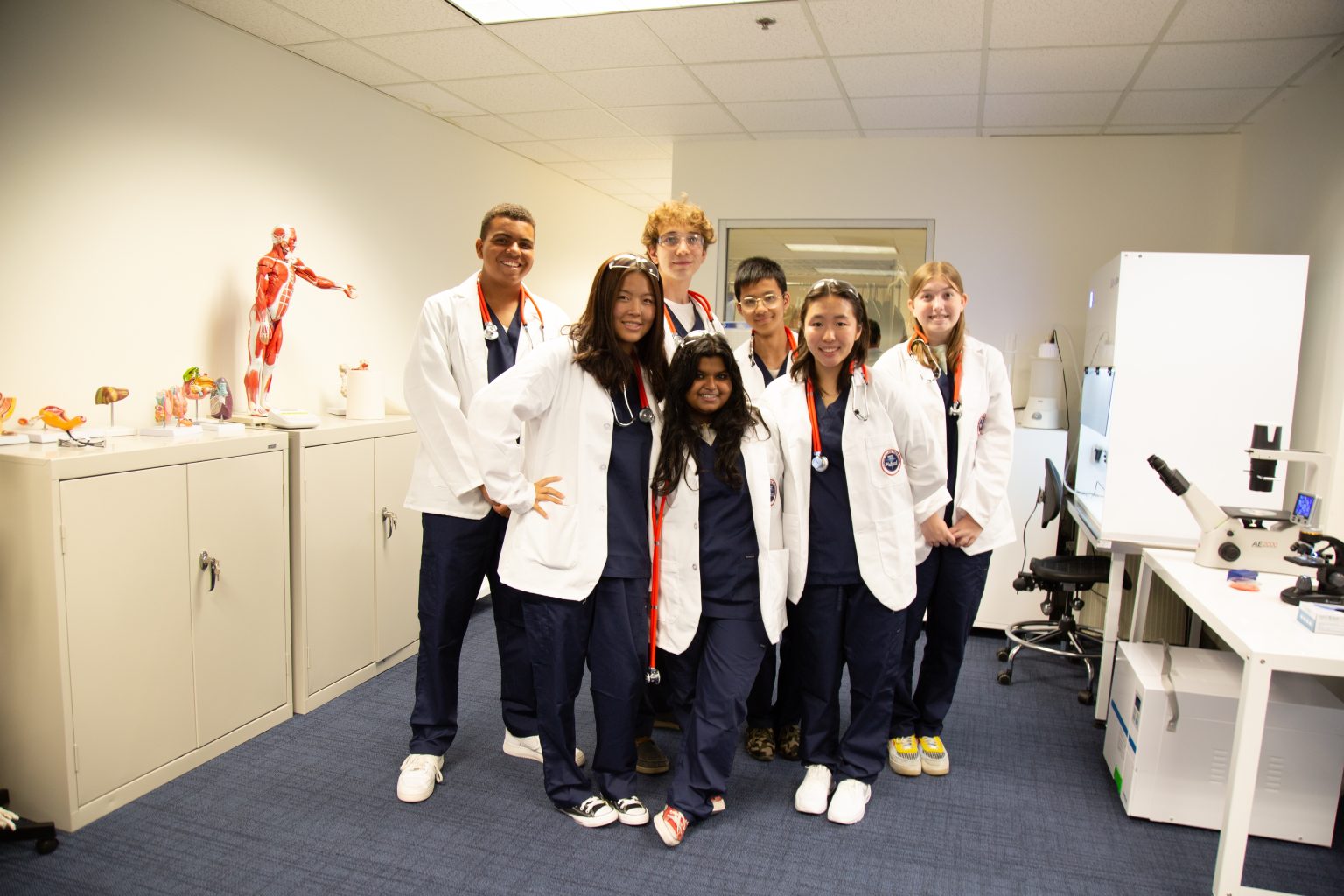
The CARLOW Center for Medical Innovation is open to students interested in various fields in healthcare. In the program, each student will gain valuable experience that will give them a foundation for higher education programs in Pre-Med, Biological and Medical Anthropology, Biochemistry, and Medical Engineering. Students enrolled in the pathway program at the Center for Medical Innovation will be given the opportunity to participate in community networking, career counseling, job shadowing, and student research in partnership with Shriners Hospital for Children® and other local organizations.
Medical professionals across the county will join and provide students with first-hand knowledge and instruction. Additionally, local community researchers will collaborate on our student’s medical investigations, providing our La Salle students with local, regional, and national research opportunities.
Acadicus is an exciting virtual reality healthcare platform where students can experience clinical environments relevant to their future and receive extensive medical terminology, communication, and teamwork training across various healthcare environments. By bringing participants together, students will interact with patients and peers inside the VR scenario without the restraints of physical location. The Acadicus curriculum provides realistic trauma simulations to teach students to rely on their training, regulate their emotions, thoughts, and actions, triage patients, and practice complex skills to resolve traumatic medical situations. In addition to an expansive VR library of medical scenarios, this platform allows an instructor to quickly create additional healthcare scenarios most relevant to our students.
Few things in life are harder than being born without a limb or losing a limb later in life. We have invested in high-end scanners and 3D printers to engineer and produce prosthetic arms, legs, hands, and feet to serve all those less fortunate who live life daily without. Young aspiring medical practitioners will become highly trained in the technical skills of the creation of artificial prostheses and consult with experts in the field to hone their skills in the design and application of each prosthetic. With great appreciation for those who served our country, our center will provide engineered prosthetics to help transform the lives of pediatric patients and honor the sacrifice of veterans.
Our State of Art 3D Anatomage table provides opportunities for our students to visualize human anatomy with the highest level of accuracy. This technology will transform the way kinesiology is taught and how students learn anatomy and physiology. Anatomage bodies provide active physiological responses inside a living human body, simulating and projecting the same responses one would experience in a research laboratory or clinical setting.
An instrument that precisely regulates and maintains preprogrammed temperature settings to facilitate temperature-sensitive reactions such as PCR (Polymerase Chain Reaction- amplifies (copies) specific segments of DNA)
The instrument is used to quantify levels of gene expression in real time. It is essentially a thermal cycler with the ability to quantify DNA or RNA after each cycle of PCR. Fluorophores are added to the reaction, allowing fluorescent sensors to detect fluorescence that corresponds to the generation rate of the PCR product. This data is then analyzed through software to determine relative gene expression.
A device is used to separate DNA based on charge and size (bottom piece with orange tray). The top portion allows the user to visualize the separated DNA and capture an image.
Fluorescent microscope that allows detection of fluorescently labeled antibodies that correspond to specific proteins.
Sterile environment for tissue culture work. Prevents outside contamination of cells.
Counts mammalian cells automatically and excludes dead cells.
Desktop Computer Numerical Control (CNC) machine that can produce custom 2D and 3D parts for our robotics and prosthetics projects.
Materials: Wood, plastic, aluminum, brass
Information
Simulating realistic health care or trauma experiences where students can learn without the risk of injury is difficult. However, The CARLOW Center of Medical Innovation is equipped with virtual facilities and equipment, including interactive patients and authentic learning environments from our virtual care library, including Exam Rooms, Operating Rooms, ICU, NICU, PICU, Outdoor Cityscapes, Residential, Assisted, & Long Term Care Facilities.
Our newly constructed facility is located on the ground floor adjacent to the La Salle Library and Resource Center. All students must wear scrubs, coats, and shoes appropriate for the medical/lab environment. Our new Center will be open from 2:25-4:00 pm daily for labs, academic support, and skill practice.
The La Salle Center for Medical Innovation Pathway will include:
|
|
With a Master’s Degree in Chemistry and a Bachelor’s in Biology, Ms. Parga teaches a plethora of different science courses, including AP Biology, Human Anatomy, Forensic Science, Sports Medicine, and Chemistry. Before becoming an instructor, Ms. Parga worked in stem cell and cancer research at the City of Hope and Charles Drew School of Medicine. During her tenure in the lab, she became a published cancer research scientist with qualifications in cancer genomics and stem cell research and therapy. Her choice to transition into teaching came from her zeal for science and wanting to positively impact young lives. Her mission is to provide all the necessary resources, tools, and support to make each student competitive and successful in any science career. She can be reached at: eparga@lasallehs.org.
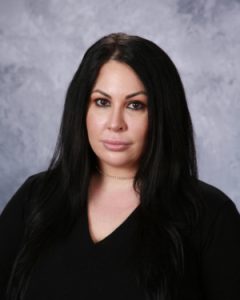
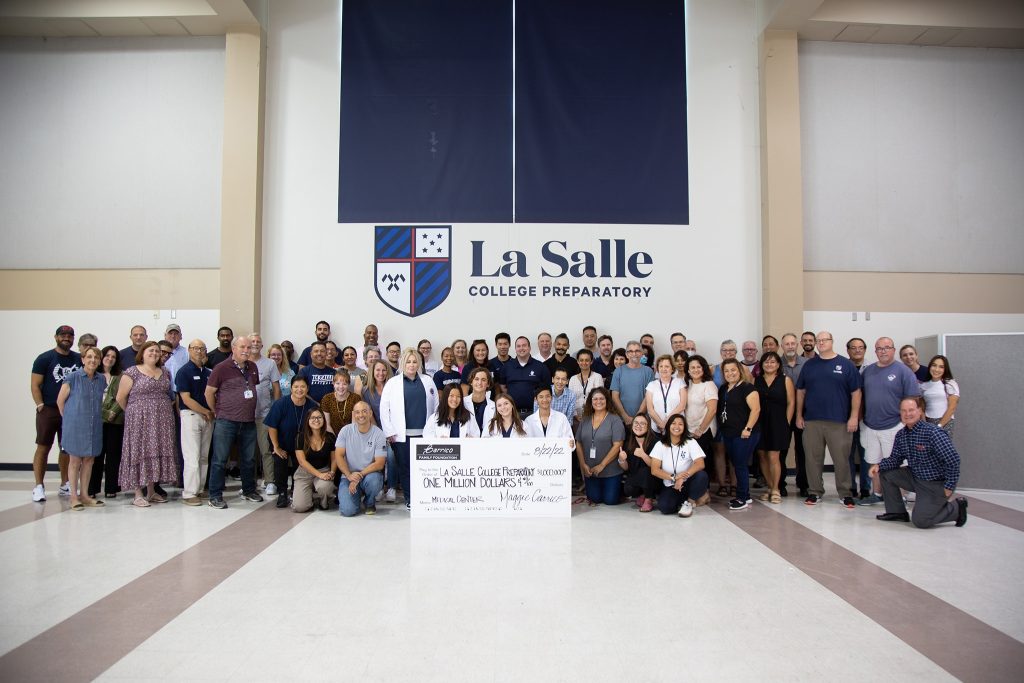
Prospective La Salle College Preparatory students contact the La Salle Admissions Office at admissions@lasallehs.org for additional information.
Center for Cultural Perspectives
La Salle's Commitment to Global Understanding and Navigating Diverse Perspectives
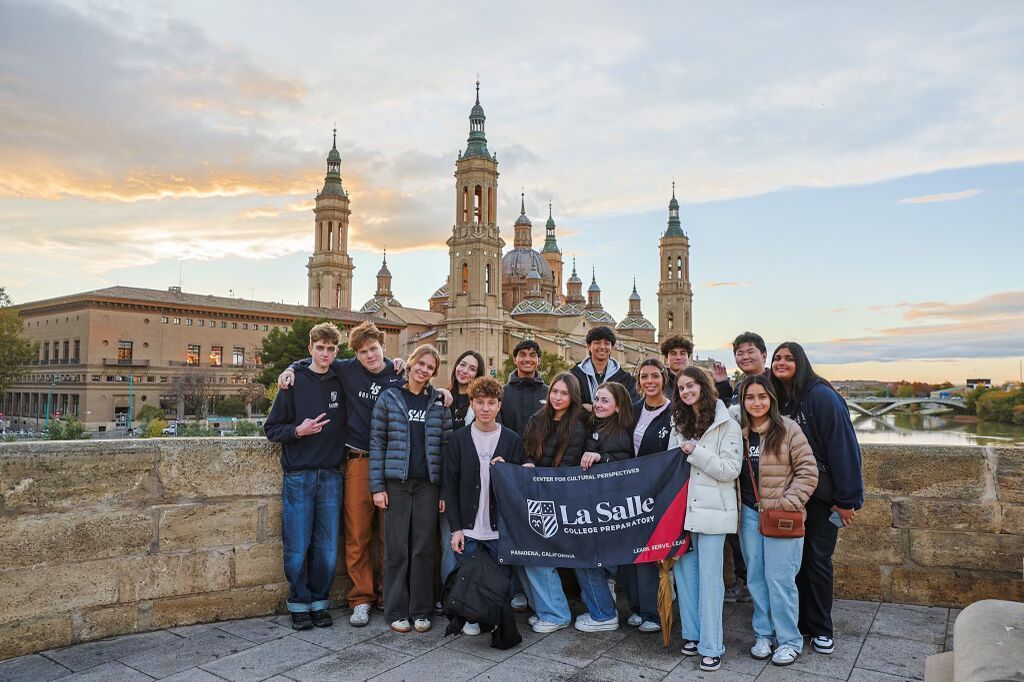
Lasallian Schools are located in over 80 countries, forming one of the largest school networks in the world. As a member of this worldwide Lasallian education network, La Salle College Preparatory believes that a global education is essential for developing the knowledge and skills needed to thrive in a diverse world. This education cultivates an awareness of different cultures, an appreciation for varied perspectives, and an understanding of how culture shapes actions and perceptions.
The Center for Cultural Perspectives is dedicated to providing our students with invaluable opportunities to embrace diversity, develop intercultural understanding, and cultivate empathy and diplomacy. Our programs empower students to become informed, open-minded individuals capable of using critical thinking and diplomacy to navigate global interactions skillfully and effectively. The Center also inspires students to pursue their passion for intercultural relations and global peace while serving others.
Through opportunities to travel globally, host international visitors, study abroad, and participate in service projects or real-life simulations, students develop communication, collaboration, creativity, and critical thinking skills. These abilities are increasingly recognized as essential for achieving global competence and succeeding in today’s interconnected world. Additionally, students are prepared to address the world’s most pressing issues collaboratively, equitably, and sustainably. Immersed in cultural experiences, they learn to appreciate the interdisciplinary nature of global issues, given the complexity of environments and competing needs and interests in our world.
Guided by our Lasallian mission, the Center for Cultural Perspectives nurtures curiosity and creativity, enabling La Salle students to advance the common good through learning, leadership, and service.
Center for Cultural Perspectives
Competency Practices & Skills
In today’s increasingly interconnected and diverse world, developing global and intercultural skills is essential for students to thrive. These crucial skills foster cultural understanding and effective communication, preparing students for both personal and professional success by equipping them to tackle complex global challenges and excel in diverse career environments, ensuring they are ready for the opportunities and demands of the future.
-Understanding and appreciating diverse cultures, beliefs, and practices.
-Developing empathy and respect for differences.
-Learning to communicate effectively with people from different cultural backgrounds.
-Developing skills in listening, interpreting, and conveying messages across cultural boundaries.
-Analyzing global issues from multiple perspectives.
-Evaluating the impact of cultural differences on social, political, and economic issues.
-Acquiring proficiency in one or more foreign languages.
-Enhancing ability to communicate and engage in different cultural contexts.
-Developing strategies to navigate complex global challenges.
-Learning to collaborate with people from diverse backgrounds to find innovative solutions.
-Learning to adjust to new environments and situations.
-Building resilience in unfamiliar or challenging contexts.
-Understanding one’s role and responsibilities in a globalized world.
-Engaging in actions that promote social justice, environmental sustainability, and human rights.
-Enhancing teamwork, collaboration, and relationship-building with people from diverse cultures.
-Developing negotiation and conflict resolution skills.
-Learning to lead with integrity, respect for diversity, and a commitment to the common good.
-Understanding the ethical implications of decisions in a global context.
-Developing the ability to see the world from multiple viewpoints.
-Understanding how culture shapes perceptions and behaviors.
Programs & Opportunities
Programs and opportunities will cover a variety of focused areas, such as Lasallian Leadership Development and Service, Language Studies, STEM, Art, and Global Studies. Students will explore intercultural relationships, practice cultural awareness, and gain unforgettable insights into diverse perspectives to help develop their own understanding of today’s interconnected world. This process not only develops global competence, creative minds, and courageous new perspectives but it also sparks an enthusiasm for fostering connections and collaboration.
Whether it’s a short global adventure or an extended study abroad, La Salle student will experience studying and interacting with other students from other cultures, learning their way of life through a lens of compassion and empathy.
2025-2026 Exchange & Service-Learning Destinations: (submit a student application)
La Salle Montemolín & La Salle Gran Vía, Spain (Zaragoza & Madrid), 11/20 to 12/1, 2025
Sacre-Coeur La Salle & La Croix Rouge La Salle, France (Reims, Brest & Paris), 11/20 to 12/1, 2025
Colegio De La Salle, Argentina (Buenos Aires), 4/2 to 4/12, 2026
Shanghai Soong Ching Ling School, China (Shanghai), 4/2 to 4/12, 2026
Summer service-learning in Zaragoza, Spain (7/30 to 8/30, 2026)
Summer service-learning, Italy (various locations; 6/13 to 7/15, 2026)
Interested in hosting a visiting student from one of our partner schools? Please sign up here and join us for the fun adventure!
Want more details? You can always find them here via the Center newsletter.
Independent study abroad programs provide students with the opportunity to immerse themselves in a new culture, fostering personal growth and enhancing global perspectives. Students gain invaluable experiences that build independence, cultural understanding, and adaptability, preparing them for future academic and professional endeavors. Additionally, career-focused programs offer industry-specific insights and practical learning opportunities, equipping students with a deeper understanding of their chosen fields and enhancing their future career prospects.
Current program partners —
- Council on International Education Exchange (CIEE)
- International House, Valencia, Spain
- Centro Mundolengua, Serville, Spain
- Saint-Denis International School, Loches, France
Career pathways are offered in nearly one-third of all United States school districts, aligning educational skills and concepts under a career theme providing essential elements of Rigorous academic coursework, future applied skills, career-focused thematic design, and Work-based learning.
La Salle College Preparatory introduces our Global Scholars Pathway Certificate, designed to cultivate essential global competency skills and engage students in targeted learning experiences aimed at fostering cultural awareness, cross-cultural communication, collaboration, and empathy. Additionally, students will develop the ability to navigate and interact effectively with individuals from different cultural backgrounds.
This Pathway Certificate also enables students to deepen their understanding of pressing global issues through advanced-level studies and immersive experiences. They will have opportunities to sharpen their critical thinking and diplomacy skills, empowering them to thrive in an increasingly interconnected world and make positive contributions to the global community.
Student Pathway Certificate Application
Completion Requirements: These requirements cover four major areas of studies and practices: | |
Academic Studies | -Completion of a minimum of two Pasadena City College dual-enrollment Global Studies courses taught at LSCP. |
Intercultural Learning | -Active participation in outbound exchange, hosting of visiting students, and/or Independent Study Abroad. |
Community Engagement | -A minimum of forty hours of an internship or community service project that includes global competence components or is aligned with global competence framework. |
Critical Reflections | -Share and reflect on global studies and experiences through individual projects or campus activities. |
Additional Capstone Project to Earn a Graduation Stole:
- Student candidates can choose projects or activities that:
*reflect a culmination of academic exploration, critical thinking, and cross-cultural understanding;
*allow opportunities to investigate complex issues such as cultural identity, globalization, social
justice, or international relations;
*examinate how these factors shape our interconnected world. - Projects or activities may include components such as fieldwork, case studies, interdisciplinary
studies, or other forms.
All capstone projects will be pre-reviewed, approved, and mentored by the Center Director and/or
additional advising faculty.
The Center for Cultural Perspectives offers the following college-level courses through our partnership with Pasadena City College. These courses are offered free of tuition and enrollment is open to all grades. Students who successfully complete these courses will earn three college credits that are transferrable to institutions within the UC and CSU system.
Global Studies 001: introduction to Global Studies (course description)
Global Studies 002: issues in Global Studies (course description)
Speech 010: Interpersonal Communication (course description)
Interested students can contact the Center Director for Cultural Perspectives at jsun@lasallehs.org for additional information and registration assistance.
Harvard Model Congress (HMC) holds the distinction of being the nation’s oldest government simulation conference, serving as the premier platform for high school students to engage in congressional simulations.
The Center for Cultural Perspectives provides the opportunity through two distinguished programs –
- San Francisco-based Conference (HMCSF):
HMCSF is a leading civic engagement conference within the Harvard Model Congress network worldwide. At the annual HMCSF, student participants collaborate directly with Harvard delegates to hone critical skills such as speech, debate, and in-depth analysis of pressing political issues. Through realistic simulations, students engage in debates, author legislation, and navigate complex political landscapes.
Participation in HMCSF offers students a rare opportunity to develop essential skills that enhance their critical-thinking abilities, broaden their perspectives, and grasp nuanced understandings of contemporary issues. Additionally, students benefit from networking opportunities with peers from diverse backgrounds and engaging in meaningful discussions with Harvard delegates.
- Summer Harvard Leadership & Communication Workshop
This immersive five-day program equips students with the foundational skills needed to become confident and effective public speakers while developing essential skills such as leadership, interview techniques, teamwork, and negotiation. Through engaging dialogues, students will also explore the importance of cultural learning and apply critical thinking skills to analyze and discuss current global issues. They will receive mentorship and coaching as they prepare for a capstone presentation. Additionally, the workshop includes a college application information session and a Q&A with Harvard mentors. The program concludes with a Certificate of Completion issued by the Harvard Model Congress, recognizing students’ dedication and achievement.
The Center also fosters interdisciplinary growth by collaborating with other programs, such as Speech & Debate or Model UN, to provide students additional opportunities to further refine their practical skills, and supporting students to actively participate in programs and initiatives promoting international cooperation and diplomacy studies.
- Global Education Benchmark Group Student Dialogue & Global Competency Certificates (GEBG)
As a GEBG member school, La Salle offers students the opportunity to engage in GEBG’s global intercultural conversations, connecting thousands of young learners from schools across North America and over 37 other countries. These discussions tackle important global issues and current events, including climate change, gender equality, and various UN Sustainable Development Goals, all aimed at enhancing students’ intercultural communication and perspective-taking skills.
GEBG also introduces a Global Competence Certificate Program for students aged 14-17. It is a unique virtual opportunity for teens to cultivate essential global skills and build cultural bridges while becoming part of a global community. It features a secure platform exclusively for minors to connect and interact with peers worldwide.
- National Student Leadership Conference (NSLC)
The National Student Leadership Conference offers an engaging and immersive pre-college experience designed to prepare students for life after middle and high school. Participants have the chance to study in university settings, become familiar with campus life, and explore potential career interests. Additionally, each NSLC program includes a leadership curriculum that imparts valuable skills applicable across various aspects of life.
- United Planet Virtual Global Citizen Leader Internship
The Global Citizen Leader Internship Program is an extraordinary opportunity for high school students to engage in virtual internships with social enterprises and nonprofits in over 20 countries, all from the comfort of their homes. This fully funded program not only provides valuable work experience but also offers comprehensive training in global citizen leadership.
Sunny is a long-time language & cultural studies and international exchange program specialist, and her area of expertise is in outreach programs that promote global education. With a Master’s degree in Education Leadership and Management, complemented by a unique cross-cultural background, Ms. Sun channels her passion and vast knowledge to create opportunities that enable all members of La Salle’s community to connect with people and cultures through global studies and intercultural exchange. As the Center for Global Initiatives & Cultural Perspectives director, Ms. Sun organizes and oversees all exchange and collaborative programs with Lasallian schools and other partners worldwide. Ms. Sun can be reached at jsun@lasallehs.org.
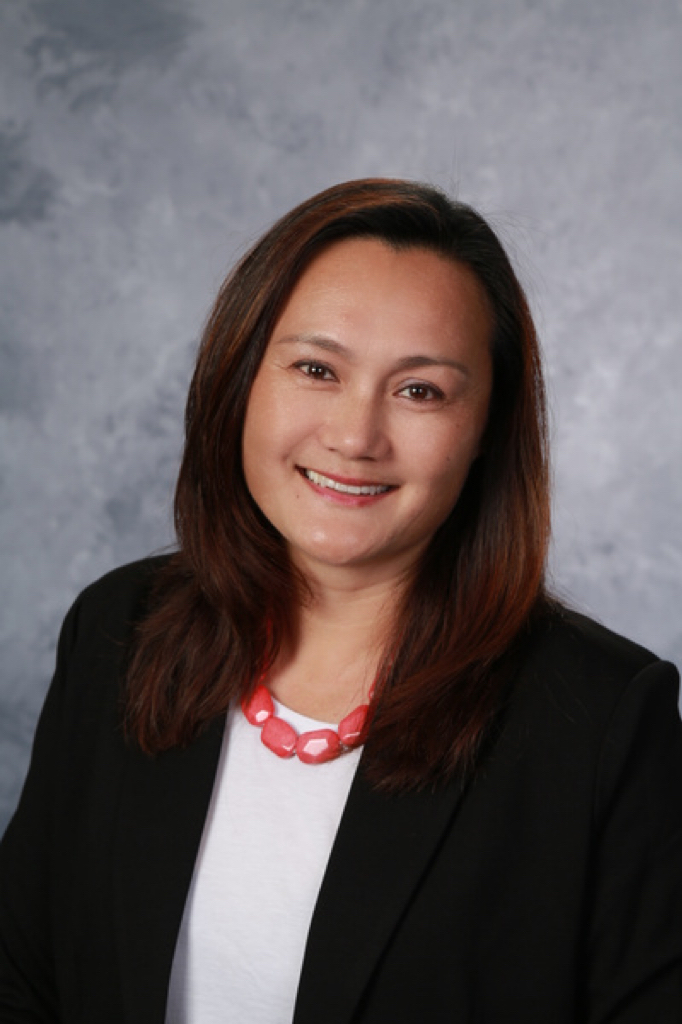
Center for Cinematic Arts
Cinematic Center makes ABC 7 News
Facilities & Equipment
A well-equipped facility and high-quality camera gear provide a conducive environment for creativity and production, offering adequate space for scriptwriting, filming, and editing. Additionally, industry-standard camera equipment ensures that students can capture stunning visuals and achieve the desired cinematic aesthetics, enhancing the overall quality of their projects. Our Cinematic Center fosters collaboration and innovation, crucial for creating impactful multimedia content. These resources serve as the foundation for students’ visions to become reality.
A cyclorama, a cyc wall, is a blank, modular walled background with curved surfaces and seamless corners. It can supply what’s called an “infinity background.” This makes the studio seem larger than it is and allows users to hide external equipment off-screen easily. In still photography or video production, this helps make your background almost ‘disappear,’ leaving many possibilities for lighting. This is great for commercials, giving the products full attention, or using a green screen.
Canon EOS C70 is a compact and versatile cinema camera designed for content creators seeking high-quality video production in a portable form factor. Combining the power of Canon’s Cinema EOS system with the flexibility of a mirrorless design, the EOS C70 features a Super 35mm Dual Gain Output (DGO) sensor. It supports 4K video recording up to 120fps. It offers professional-level features like Dual Pixel CMOS Autofocus, high dynamic range recording with Canon Log 2 and 3, and the ability to capture pristine 16+ stops of dynamic range.
Canon EOS R signifies a pivotal step in Canon’s imaging evolution, introducing a full-frame mirrorless camera that balances innovative technology with traditional craftsmanship. Built around a 30.3-megapixel sensor, the EOS R captures richly detailed images with remarkable clarity. At the same time, the Dual Pixel CMOS autofocus system covers a vast area of the frame, delivering swift and precise focusing. The camera’s customizable, high-resolution electronic viewfinder offers a seamless shooting experience, and its adaptable RF mount not only opens doors to new optical possibilities but also maintains compatibility with EF and EF-S lenses through adapters.
Canon EOS R5 stands as a groundbreaking mirrorless camera, pushing the boundaries of imaging technology for photographers and filmmakers. Featuring a remarkable 45-megapixel full-frame sensor, the R5 can capture stunningly detailed photographs and 8K video recording, setting new standards for resolution and clarity. With its advanced Dual Pixel CMOS II autofocus system, offering 5,940 selectable AF points, the camera achieves unparalleled focusing accuracy and speed.
Canon CN-E Sumire Prime Lenses represent a pinnacle of cinematic excellence, purposefully designed to infuse visual storytelling with a distinct and evocative character. Drawing inspiration from the Japanese concept of “Sumire,” which means a flower with deep color and subtle gradations, these lenses offer a unique blend of stunning imagery and artistic expression. With a consistent T-stop of T1.5 across the set, these full-frame compatible prime lenses deliver remarkable low-light performance and exquisite bokeh. Their carefully crafted optical construction imparts a cinematic softness to highlights while maintaining exceptional sharpness in the focal plane. They are built for professional cinematographers.
Available Lenses: 35mm T1.5 / 50mm T1.5 / 85mm T1.3 (PL Mount Lenses with a PL→RF Mount Adapter)
Canon’s RF mirrorless lenses exemplify cutting-edge optical engineering within a compact and versatile design tailored to complement the full potential of the RF mount ecosystem. These lenses deliver exceptional image quality, high-resolution clarity, and reduced aberrations by harnessing advanced visual elements and coatings. The combination of fast and accurate Dual Pixel CMOS autofocus, along with the wide RF mount’s capabilities, results in remarkable precision and speed in capturing both stills and video.
16mm f2.8 / 24mm f1.8 / 35mm f1.8 / 50mm f1.8 /
15-35mm f2.8 / 24-70mm f2.8 / 70-200mm f2.8
28-70 f2.0
Rokinon XEEN CF Cine Lenses epitomize precision and versatility in cinematic imaging, catering to the demands of professional filmmakers and cinematographers. Engineered with a focus on optical excellence, these prime lenses offer an expansive range of focal lengths, providing the creative freedom to capture scenes with utmost clarity and creative control. The XEEN CF series boasts a lightweight and compact carbon fiber construction, making them ideal for agile shooting setups. With a consistent 11-blade aperture and reduced focus breathing, these lenses deliver seamless transitions and breathtaking bokeh.
16mm T2.6 / 24mm T1.5 / 35mm T1.5 / 50mm T1.5 /
85mm T1.5 (EF Mount lenses with EOS R→EF Adapter)
Vazen anamorphic lenses epitomize cinematic artistry by offering a distinctive and immersive visual storytelling experience. These lenses are designed to capture imagery with a unique anamorphic flare characterized by widescreen aspect ratios, horizontal lens flares, and captivating bokeh. Renowned for their exceptional build quality and optical precision, Vazen anamorphic lenses cater to filmmakers and cinematographers seeking to infuse their projects with a vintage cinematic aesthetic.
Available Lenses: 28mm T2.2 1.8x / 40mm T2 1.8x / 65mm T2 1.8x
Equipped with The Apple 24″ iMac, it stands as a compact powerhouse of innovation, merging cutting-edge technology with a sleek and vibrant design. Boasting a stunning 4.5K Retina display that captivates with its lifelike colors and crystal-clear visuals, the iMac offers a remarkable canvas for creative endeavors and productivity. Apple M1 chip with 8-core CPU with 4 performance cores and 4 efficiency cores, 8-core GPU, and 16-core Neural Engine
8GB unified memory
512GB SSD storage
Two Thunderbolt / USB 4 ports
Two USB 3 ports
Gigabit Ethernet
Magic Mouse
Magic Keyboard with Touch ID
All computers have been preprogrammed with an Adobe Suite License containing Premier Pro, After Effects, Lightroom, Photoshop, Illustrator, and InDesign. It provides a comprehensive ecosystem of professional software tools that empower individuals and teams to bring their imaginative visions to life. Encompassing a diverse array of applications such as Photoshop, Illustrator, Premiere Pro, After Effects, and more, Creative Cloud caters to graphic designers, photographers, video editors, animators, and beyond.
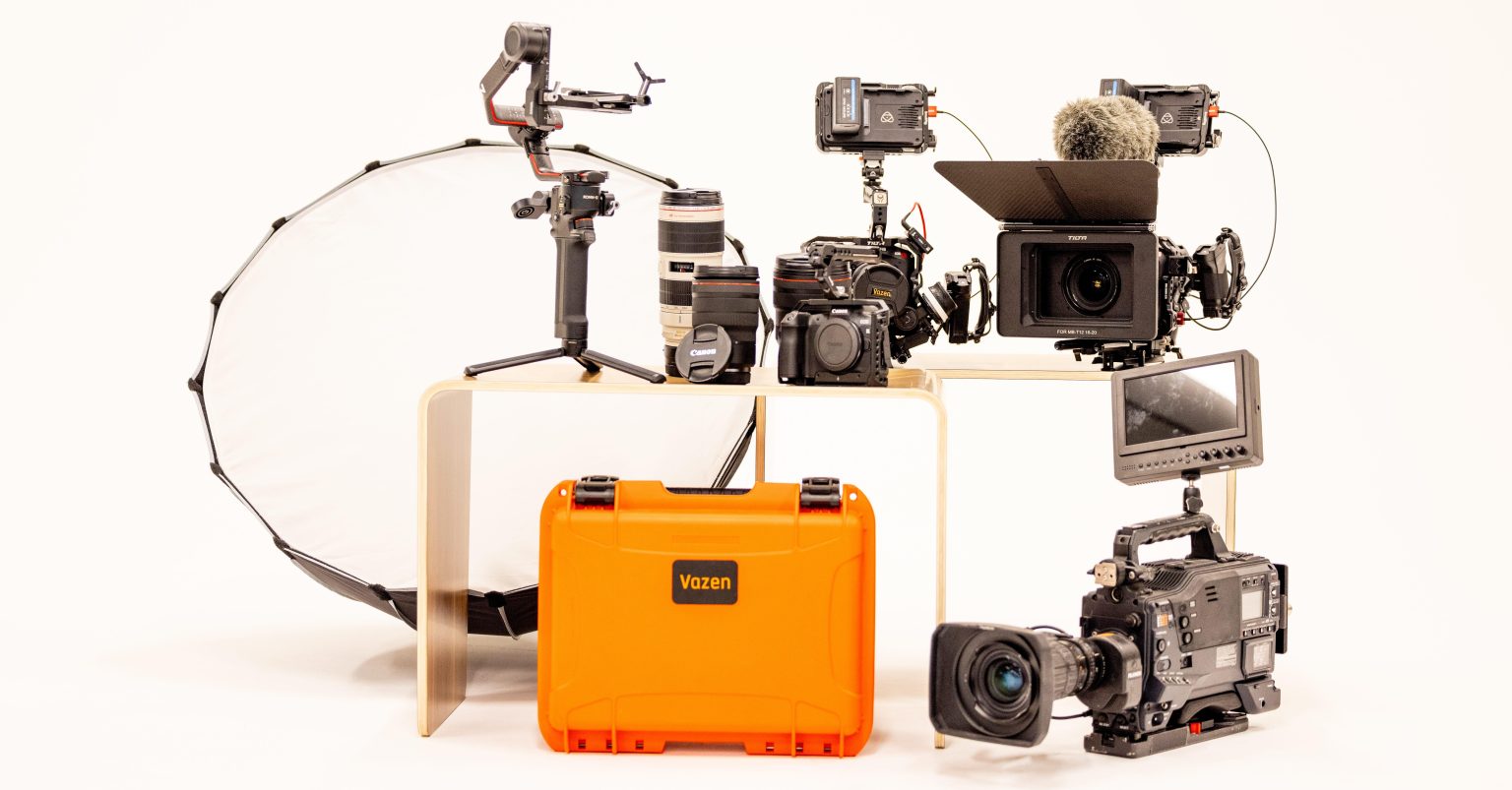
Coursework & Skills
Our Film and Media Pathway will begin with a basic understanding of the production process, regardless of the discipline. Upon completing the fundamental module, students can choose specialties, like screenwriting and directing, and learn about specific aspects of production that they feel drawn to.
Outside classroom instruction, students will go on-set for internal and external projects, collaborating with students, administration, and outside clients. Being a part of our program means you are an official member of our Production Crew, giving you leadership opportunities that include internships/apprenticeships, industry networking, independent project creation, and community service. Upon completion of the Cinematic Arts Pathway Program, students will earn a certificate of completion. Students can also do a capstone project to earn a cord to wear during graduation.
To Be Determined by the Center Director
- Production Process
Pre-Production
Production
Post-Production
Directing
Camera Operation
Cinematography
Content Creation for Social Media
Script Writing
Lighting
Sound Design / Sound Capture
- Editing
Slicing, Stitching, and Sequencing
Visual and Audio FX
Media Technologies
- Internships and Apprenticeships with Directors/Creators in the industry
- On-set days on projects currently in production
- Profile building via promotion of La Salle
Networking with industry professionals
With over seven years of experience working in production and freelancing as an independent camera operator. Akinty specializes in camera operation, working on independent films, marketing campaigns, and promotional materials for organizations like Netflix, YouTube, and the B-League (Japanese Pro-Basketball League). Akinty brings a work ethic and background uniquely tailored for teaching current industry standards to our students, having attended USC and working on sets and in studios across Hollywood and the world. He can be reached at: acarter@lasallehs.org.
Prospective La Salle College Preparatory students contact the La Salle Admissions Office at admissions@lasallehs.org for additional information.
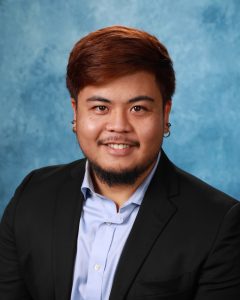
In line with our mission and Core Principles, our entire student body of over 670 students and our faculty and staff participated in community service and engagement throughout the week at different sites and organizations in the Greater Los Angeles region, as a part of our Catholic Lasallian heritage and founding. The students within our center took it upon themselves to film and produce all the amazing services that their peers were engaging in throughout the week and their hard work paid off when their production was aired on ABC 7 news just a few days later.
Center for Linguistic Exploration
La Salle College Preparatory offers a Mandarin Language Program for Future Diplomats and Business Leaders
The Center for Linguistic Exploration’s mission is dedicated to equipping students with a profound mastery of the Mandarin language. Our ultimate objective is to ensure that graduating students achieve a proficiency level of 1 to 2+ on the ILR Speaking Proficiency scale. This accomplishment will enable them to qualify for acceptance into federally funded Chinese Flagship Programs at esteemed U.S. universities. And that is not all; If students are able to meet all other academic admission requirements, they will have the opportunity to access grants and scholarships to support their higher education pursuits.
However, our vision extends beyond the confines of the classroom. The Center surpasses traditional learning experiences by offering students the opportunity to immerse themselves in Mandarin-speaking countries. In these settings, they will have unique prospects to study diplomacy and intern with local organizations while earning multiple globally recognized language certifications. This pioneering initiative, the first of its kind offered by a college preparatory educational institution, is designed to prepare our students for extraordinary success in their future careers. We firmly believe that this multifaceted approach will significantly enhance their prospects in the global government and business sectors.
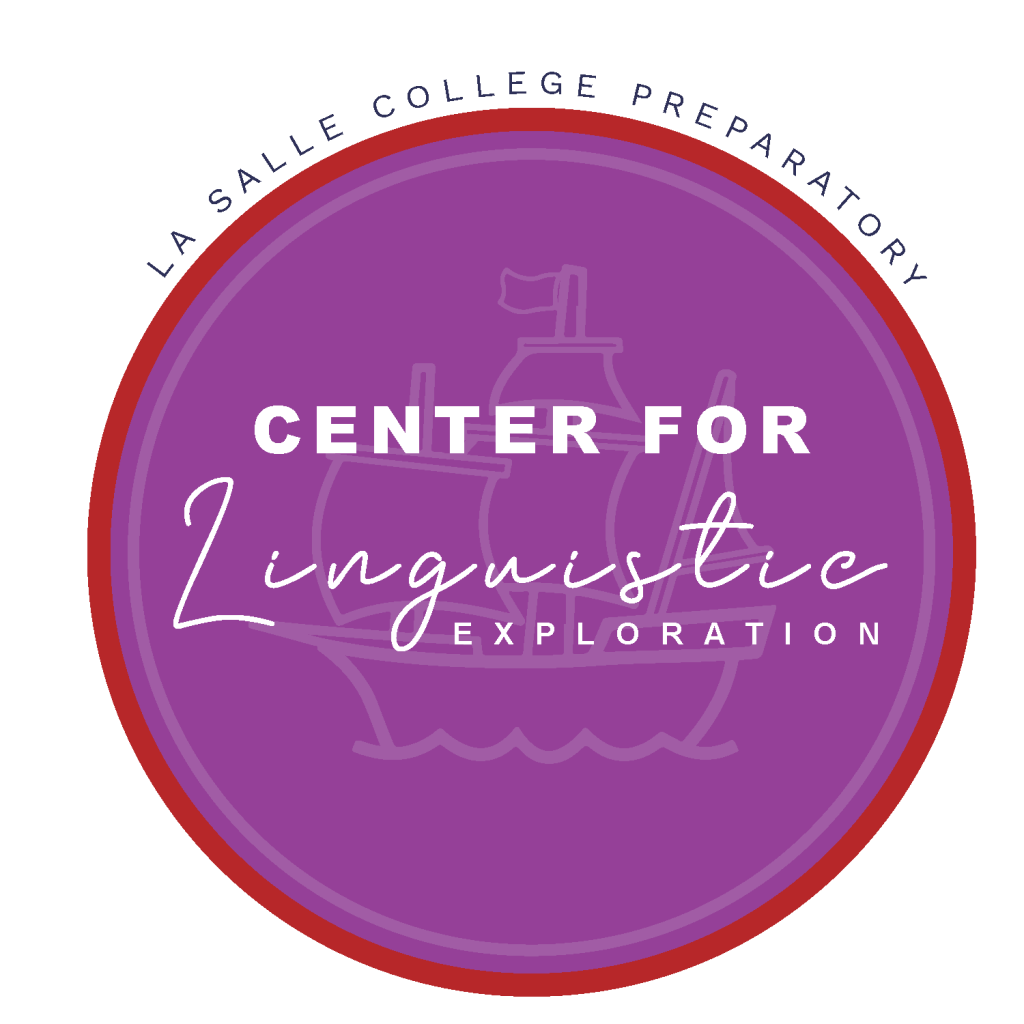
Programs & Opportunities
The following credit-bearing courses are available for participants in the program.
CHIN 001-002 Elementary Chinese (mandarin) – level 1 & 2 – 5 units each course
CHIN 003-004 Intermediate Chinese (mandarin) – level 1 & 2 – 5 units each course
CHIN 005 advanced Chinese Reading and Composition – level 3 & AP – 3 units
P.S.: 5 unit courses = 3.5 hours x 2 day/ wk (7 hours/week for 16 weeks = 112 total hours)
3 unit courses = 1 hour 25 minutes x 2/wk
Colleges and universities typically encourage language certifications demonstrating a high proficiency level in Mandarin Chinese. While specific preferences may vary from one institution to another, our well-recognized Mandarin language program will offer students the best certificates and proficiency exams that can bolster student college admission application, including the following:
The Global Seal of Biliteracy recognizes students who have attained a certain level of proficiency in two or more languages. It is a powerful honor that will help you earn college scholarships, receive admittance into study abroad programs, and access significant career opportunities.
Chinese Proficiency Test-HSK (Hanyu Shuiping Kaoshi) & YCT (Youth Chinese Test): The HSK is a standardized test of Chinese language proficiency recognized worldwide. Colleges often look favorably upon high HSK scores. YCT, an international standardized test for Chinese language proficiency, assesses primary and secondary school students’ abilities to use Chinese as a second language in their daily and academic life.
ACTFL OPIc (American Council on the Teaching of Foreign Languages – Oral Proficiency Interview Computer): The ACTFL OPIc assesses a student’s spoken language skills in Mandarin. Colleges consider your OPIc score as evidence of oral proficiency.
The University of Hawai‘i at Mānoa (UHM) Chinese Flagship Program will offer a ten-day Mandarin Immersion Program and Experience in Honolulu, Hawai‘i. Students will live in on-campus housing and be taught by UHM Chinese faculty. This will be an unforgettable, immersed experience full of learning and cultural exploration. Pending receipt of funding, students will pay only for airfare and food; housing and tuition will be subsidized. Students will attend this workshop as part of the final requirements for the program certificate. Participation is limited to 15 students/year, with priority given to 11/12th graders.
Semester Learning Abroad—Study in a country in which Mandarin is the primary language; Live with a host family, and use Edgenuity (Lasalle’s online platform) to keep current with LSCP courses that aren’t taught in the target country. (Cost to be determined.)
- Other Potential Summer Mandarin Immersion Experiences
Chinese Language Institute (Taipei, Taiwan)
Concordia Language Villages (Minnesota, USA): Offers Chinese language immersion programs in a summer camp setting.
- Students can enroll in the Chinese Medical Terminology course taught at the CARLOW Center to earn additional recognition for both the Medical and Linguistics Exploration pathways. This would qualify the student for having completed the equivalent of a capstone project (see below).
Completion of Capstone Project: Students can design a project in consultation with the faculty of the Center, and upon satisfactory completion of the project and presentation of their work, earn the additional recognition of the cord at graduation.
Coursework & Skills
The La Salle Center for Linguistic Exploration Pathway will include:
Language Learning Apps that offer engaging and interactive ways to learn, Mandarin podcasts, Language Exchange Partners for daily interaction, Vocabulary Games, and Mandarin TV Shows and Movies allow students to see and hear words used in context. Social media in Mandarin exposes students to contemporary language use cultural experiences like cooking Chinese dishes, participating in traditional celebrations, or visiting Mandarin-speaking communities to immerse in the language and culture, and Virtual Reality (VR) Language Learning engages students in virtual environments.
- Mastering Pinyin
- Tone Practice
- Vocabulary & Grammar Foundation
- Listening Skills
- Reading & Writing Comprehension
- Cultural Awareness
Pinyin is a system that spells Chinese names and words with the Latin alphabet based on pronunciation. In Mandarin Chinese, it means ‘spell sound’. It can be a really useful tool to help you learn the correct pronunciation of Mandarin words. By learning Pinyin, students will pronounce words correctly, essential for speaking and writing.
In Mandarin Chinese, tones distinguish words from each other in the same way that consonant and vowel combinations are in English. One is an important aspect of the Chinese language because it can change the meaning of a word or phrase. In Chinese, words are made up of characters, and they are pronounced differently depending on the tone used. There are four main tones in Chinese: the first tone, the second tone, the third tone, and the fourth tone. Each of these tones has a different pitch and intonation, which can change the meaning of a word.
Developing a solid base in vocabulary and grammar within an immersive educational setting is imperative for achieving proficiency in Mandarin. Regular study sessions, persistent practice, and regular exposure to the language contribute significantly to students’ linguistic competence. It is vital to comprehend distinctive sentence structures, word arrangement, and grammatical principles, while simultaneously contrasting them with one’s native tongue in order to facilitate effective communication. This groundwork enhances linguistic aptitude and fosters a deeper appreciation of the culture, thereby enabling more profound and meaningful interactions in Mandarin.
Developing proficient listening skills in Mandarin is crucial for achieving language fluency. Consistently engaging with native speakers through a variety of resources, including podcasts, videos, apps, and virtual reality, enhances comprehension and familiarizes students with the genuine flow of the language. This not only enhances their listening capabilities but also enhances their cultural awareness. Acquiring mastery over the rhythm and subtleties of spoken Mandarin is essential for effective communication and a genuine appreciation of the culture.
The comprehension of written text is a fundamental aspect of language proficiency, particularly in the context of acquiring proficiency in Mandarin. This process entails a gradual progression from simpler texts to more intricate ones. Additionally, the refinement of writing skills is an essential component of Mandarin language acquisition. This process commences with the mastery of basic strokes, enabling students to construct the fundamental components of Chinese characters. Beginning with familiar characters, learners advance towards more intricate ones, progressively cultivating the ability to accurately form each character and comprehend its significance.
Cultural awareness is a fundamental component in acquiring Mandarin language proficiency, as it enhances one’s comprehension of Chinese traditions and protocols. This augments linguistic abilities, enabling learners better to understand contextual cues and subtle nuances within conversations. Moreover, it cultivates an environment of respectful and productive communication with native speakers, mitigating the risk of cultural misinterpretations and fostering cross-cultural appreciation.
Roadmap To Certification

The La Salle Center for Linguistic Exploration Pathway will include:
Language Learning Apps that offer engaging and interactive ways to learn, Mandarin podcasts, Language Exchange Partners for daily interaction, Vocabulary Games, and Mandarin TV Shows and Movies allow students to see and hear words used in context. Social media in Mandarin exposes students to contemporary language use cultural experiences like cooking Chinese dishes, participating in traditional celebrations, or visiting Mandarin-speaking communities to immerse in the language and culture, and Virtual Reality (VR) Language Learning engages students in virtual environments.
Upcoming Trips
This program aims to immerse high school students in an intensive and enriching experience focused on Chinese language and culture. Participants will experience the UHM Chinese Flagship pathway to college and a future career. Through interactive classes, cultural activities, immersive experiences, and excursions to sites of cultural interest in Hawai‘i, participants will gain a deeper understanding of the Chinese language, history, and traditions while engaging in cross-cultural exchange and global interaction.
Tentative program duration: 7-10 days (Sunday, May 26–Tuesday, June 4, 2024)
Mandarin Flagship Partnership Universities
(College Scholarships are available for Highly Proficient Students.)
- Arizona State University
- Brigham Young University
- San Francisco State University
- University of Hawai‘i at Mānoa
- University of Oregon
- University of Washington
Tina Wang holds a Master’s degree in Teaching Chinese as a Second Language and has accumulated a wealth of knowledge and extensive experience teaching Chinese at K-16 levels internationally. She has taught in the Philippines, Malaysia, Singapore, the United Arab Emirates, and the United States. Additionally, Tina Wang has several years of administrative experience, leading numerous outstanding Chinese language programs, including immersion initiatives. She can be reached at: twang@lasallehs.org.
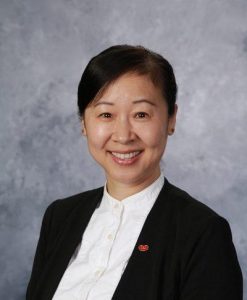
Center for Discovery & Design
The Center of Discovery and Design is a state-of-the-art 4,000-square-foot facility equipped with cutting-edge engineering technology, providing students with the opportunity to explore STEAM fields. Our curriculum focuses on the engineering design process, analytical and numerical modeling methods, and rapid prototyping, all aimed at developing a strong foundation in engineering. Students will receive hands-on training with advanced equipment, including manufacturing tools, a wind tunnel, and a flight simulator. This comprehensive education prepares students for STEAM majors in college, empowering them to begin their collegiate careers with confidence and the potential for leadership and success.
Why Join Discovery & Design:
Gain insights into various STEAM career paths ranging from Electrical, Mechanical, and Biomedical engineering.
Learn and practice standard practices and procedures with industry-grade equipment.
Get ahead of the game, learning foundational skills taught in college-level courses.
Benefit from visits from professionals in the field right on campus, who are willing to answer questions.
What Will I Study:
The Center for Discovery & Design will teach you the basics first, giving you a solid foundation to expand upon, eventually leading to you picking a discipline in which you can receive a more specialized coursework to prepare you for graduation
Engineering design process
Rapid prototyping methods
Computer-aided design modeling
Electronics and circuit design labs
Data collection and analysis
Mechanical analysis of structures
Materials selection
Manufacturing processes
Wind tunnel fundamentals
Multi-disciplinary team-based project competition
Applied robotics design
Hardware learning with a mechatronics focus
Software learning with a microcontroller programming focus
Facilities & Equipment
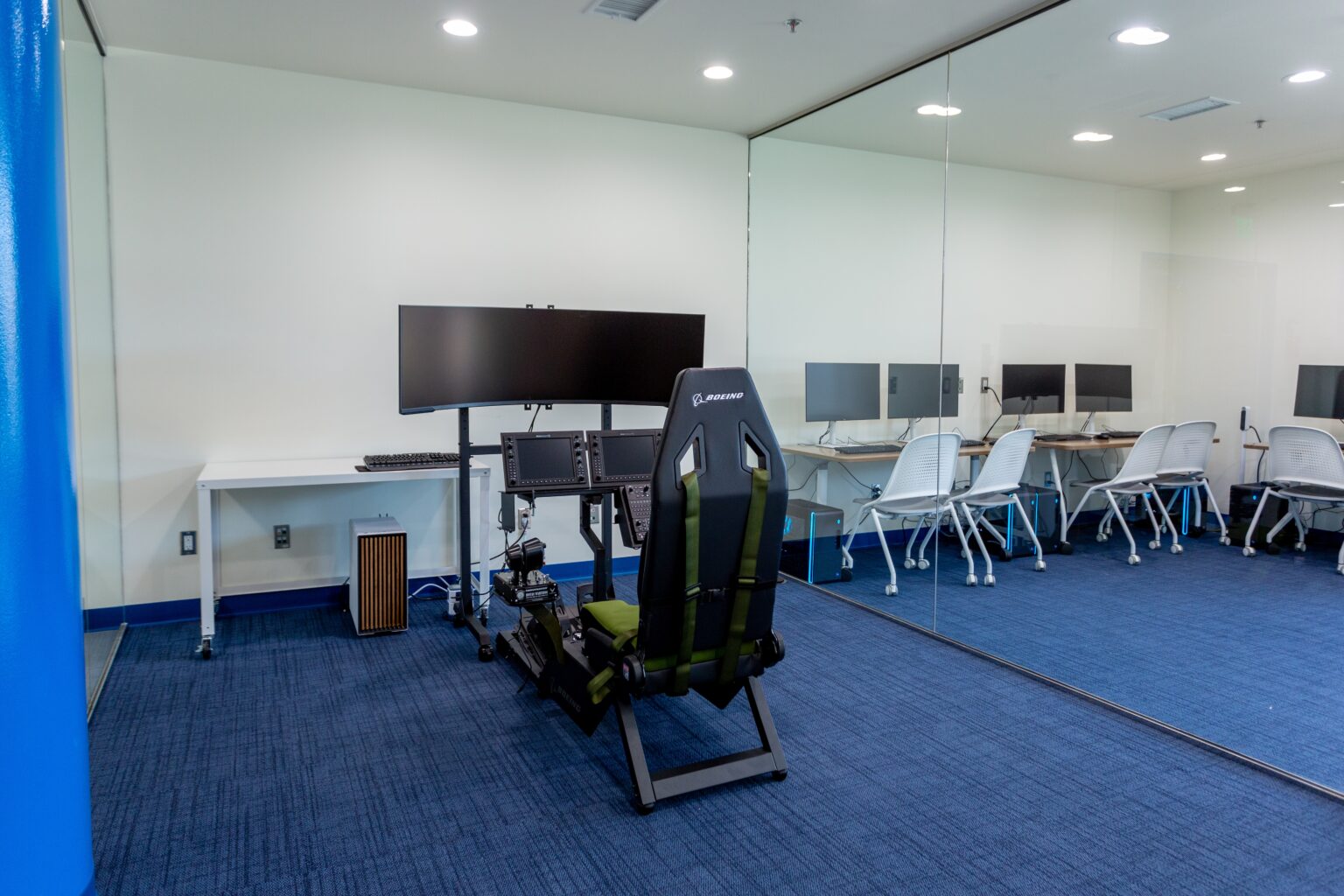
The Center for Discovery and Design is a cutting-edge facility crafted to ignite and foster students’ interest in STEAM fields. Outfitted with advanced, industry-standard technology, this center is dedicated to providing hands-on learning experiences that are usually only available in college or professional settings.
A versatile wind tunnel designed for aerodynamic testing and experiments, ideal for educational purposes and student projects in aerodynamics.
A custom flight simulator featuring a Boeing Military Edition chair provides an immersive experience for aviation training and simulation.
It is renowned for its robustness and accuracy, making it ideal for machining complex parts and prototypes from a variety of materials, including metals, plastics, and composites.
The Nomad 3 offers high accuracy and reliability and can mill a wide range of materials such as wood, plastics, and soft metals.
A high-performance laser cutter that delivers precision cutting and engraving, ideal for various materials and applications in education and industry.
A diverse array of advanced 3D printers offering high-quality printing capabilities suitable for prototyping, design, and educational projects.
Meet the Director
Israel Barrera holds a Bachelor of Science in Mechanical Engineering from Johns Hopkins University and is pursuing a Master of Science in Computer Science at Georgia Institute of Technology. Mr. Barrera combines his expertise in engineering with a passion for teaching and mentoring. As an educator, he has experience as a teaching assistant and academic tutor in various STEAM subjects, including mechatronics, programming, and mechanics. Mr. Barrera has worked on microcontroller programming and robotic designs in the engineering domain. He has mentored peers using rapid prototyping technology, helping others bring their innovative designs to life.
